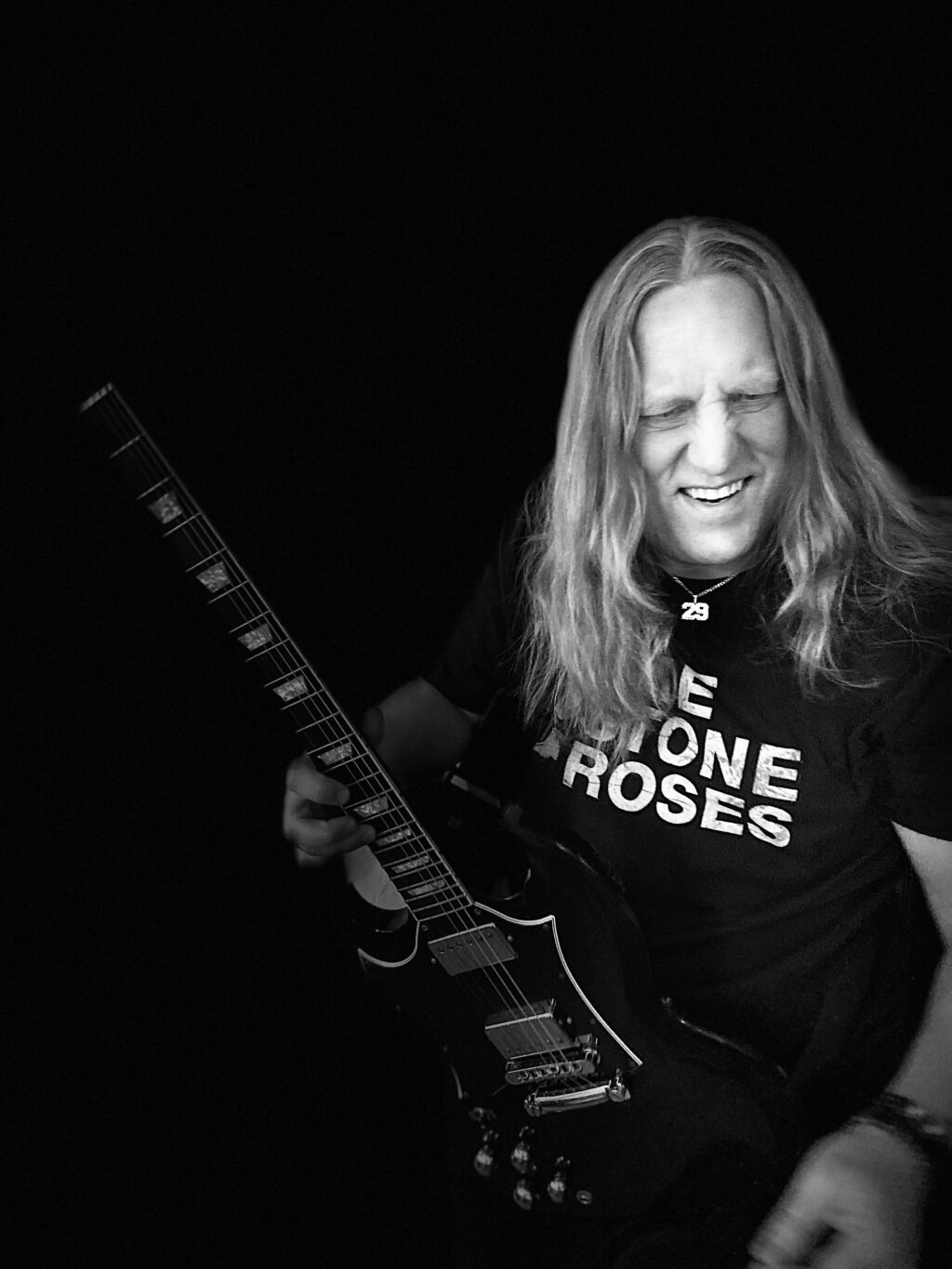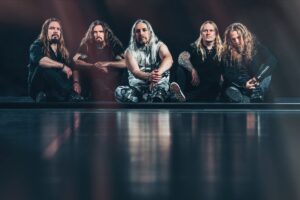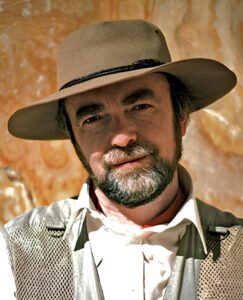Mark Duda – A New York City storyteller!
7 min read
1.How did you get into the music industry?
Like many other people, I started out singing for a cover band. I loved rock and roll and I didn’t know how to play an instrument at the time but I had some friends who were forming a band and they asked me to sing. I definitely looked the part and had always believed that I could sing, of course I had so much more to learn than what I realized, but I had the right mix of confidence and naivete to give it a shot.
2. What was the process of composing and recording the debut album, BODEGA FLOWERS?
Like with the month of Sundays EP that came before it, this was a group of songs which weren’t appropriate for The Handful or any other project I had at the time. This is music that is heavily informed by influences I picked up coming of age in New York City containing sounds influenced by artists from Dion to Lou Read and Johnny Thunders. New York legends combined with some of the harder rock I was listening to at the time. I started writing more solo material around 2017 when Month of Sundays was met with a positive response. The songs were written before and during the pandemic where I would record many of my ideas and send them to my producer/guitar player Jimi Bones, and we would flesh out the arrangements, and talk about how we wanted the songs to sound. We recorded just over 20 songs for the sessions. We had Tommy and Kasim commit drums and rhythm tracks to 16 of those songs and ultimately chose 11 for inclusion on the Bodega Flowers album. I had planned to use the same band that I did on Month of Sundays, but Kenny Aarronson had another commitment. So Tommy suggested we bring Kas in. They had worked many times together in the past and it ended up being a great call. Kas was perfect for the record, and he and Thommy make a legendary rhythm section.
3. Who are the other musicians that participated in this album, besides yourself?
Jimmi K. Bones (Joan Jett, Blondie, Jonas Brothers)joins me on guitar and as the album’s producer. Thommy Price (Billy Idol, Joan Jett) plays drums. Kasim Sulton (Utopia, Meat Laof, Joan Jett) plays bass. So, it’s a consistent, rock-solid four piece rock and roll band, with a common sonic vision. I’m also joined by guests Arno Hecht who plays saxophone; Cynthia Longley-Richards who contributes cello. Johnny Pisano sings back up vocals. Joan Chew and Kostadin Kamcev play piano on the record.
4. What is the meaning behind the photo appearing on the cover of your album?
There are many characters on the Bodega Flowers album. One of the characters is Black Eyed Susan. The cover for the album is my vision of that character. So I was looking for a lower East side rocker type to represent Black Eyed Susan and Jimi had recommended Maria Alvarez the front woman of band Jigsaw Youth. Maria has the perfect look for Black Eyed Susan. Photographer Nef Jones, Jimi, Maria and I walked around the East Village and found the perfect settings for the front and rear photos. The bouquet of beautiful flowers wrapped in newspaper echoes the theme and vibe of the record where something beautiful is often paired with something gritty and harsh, which is the way I remember that time in my life.
5. What was the main influence on the lyrics the album?
The lyrics are stories I’m telling about the people, places and things I encountered while living in the East village. And the album is the soundtrack of that time in my life. These are the personal songs, melodies, images and reflections that took shape outside my world as a “hard rock frontman,” and allowed me to be introspective and vulnerable in my writing. The material lays bare the beauty and devastation that was a part of my orbit and my psyche that was at odds with the tough hard rock imagery and swagger that my bands (like The Handful) would cultivate. The music on Bodega Flowers lifts the lyrics and tells these stories in a way the is straightforward and unencumbered. The fact the the lyrics are paired with musical restraint allows them to be heard and understood with a newfound clarity.
6. How did the COVID era affect your songwriting and lyrics?
The covid era was probably a fertile time for song writing and lyrics for me. So, my songwriting wasn’t as affected as the process of choosing and arranging the songs which was done remotely as opposed to personally in the studio. So while musicians weren’t busy with live gigs, we did have time and space to create, and I for one embraced the opportunity to be introspective without pressure to appear live.
7. What do you remember of being the front man for New York hard rockers The Handful?
The Handful was a band I started with a friend over 20 years ago without great expectations. It’s been a great way for me to showcase the hard rock side of my writing and performing. And through that music I met many fans and fellow musicians who took an interest in what I was doing. The Handful has recorded 5 albums, four of which have been released to date. For many people, this is how they first heard me sing and play guitar. Although The Handful has been an active studio project, we haven’t taken on tour obligations or extensive live playing for the last ten years which freed me up to pursue my solo career and some different things musically. The Handful is very much a collaborative project between the band’s co-founder Jay Mischel and I, and the musicians we work with. So, while I write or co-write all of the material, the songs are interpreted, arranged, and produced to suit the consensus. I think collaboration is an important part and a necessary part of the growth process for musicians and songwriters.
8. You have collaborated with many notable musicians coming from a diversity of musical genres. Any stories to share with us about those collaborations?
The Handful was looking for a new drummer around 2012 and we had an ad out for a Bobby Rondanelli type drummer and we were asking around if anyone knew anyone who played like Bobby. It was suggested to us that Bobby might be around between tours and we should call Bobby ourselves and just ask him. So we reached out to Bobby and asked him to play on our Sons of Downtown record and now he’s played on that album and another two albums worth of material which we have yet to release. The lesson that came from that was that it doesn’t hurt to reach out to the musicians you want to collaborate with – some will ignore you, some will ask for a lot of money and some will also believe in the music the way you do and want to work together. So Bobby was the first major outside collaborator I worked with but the process of getting him in the band emboldened me to reach out to other folks I had wanted to collaborate with. So the Handful 2015 album Sons of Downtown includes collaborations with guitarist Cheetah Chrome—a friend from the New York days, guitarist Pat Travers (we had previously opened for Pat), and a duet with Cherie Currie. Since then I have continued to collaborate with Cheetah Chrome, guitarist Jimmi Bones, drummer Thommy Price, and bass players Kenny Aaronson and Kasim Sulton. Co-founder of The Handful, Jay Mischel, recently arranged collaborations with Jake Cinninger (Umphrey’s McGee) and Steve Hackett (Genesis).
So both my solo albums and well as The Handful’s last two albums contain a fair amount of collaboration which always lights a creative fire for us, and great anticipation from the fans.
9. Is New York still a cool place to live and play music?
Yes, New York will always be a cool place to live and play music but it’s not as much of a rock and roll town as it used to be. Thankfully the diversity is still there which allows multiple scenes to flourish. The biggest challenge for an artist in New York is basic survival because New York is one of the most expensive places to live in the world. Much of my New York rock and roll story is rooted in a time and place where struggle was as much as a part of the journey as the music itself. Now the very fact of living in New York presupposes a level of success that very few of us reached in our time there. So the vibe is very different, but the electricity is still there.
10. What about your next plans?
I’ll likely take a few months off from recording and see how the album is received before starting work on another record. Of course, I am always writing lyrics and music and continuing the soundtrack of my life.
To order or stream BODEGA FLOWERS please visit: https://lnk.to/BodegaFlowers
For more information about MARK DUDA or upcoming tour dates please visit: www.markdudamusic.com or https://markduda.bandcamp.com/



4 thoughts on “Mark Duda – A New York City storyteller!”
Comments are closed.